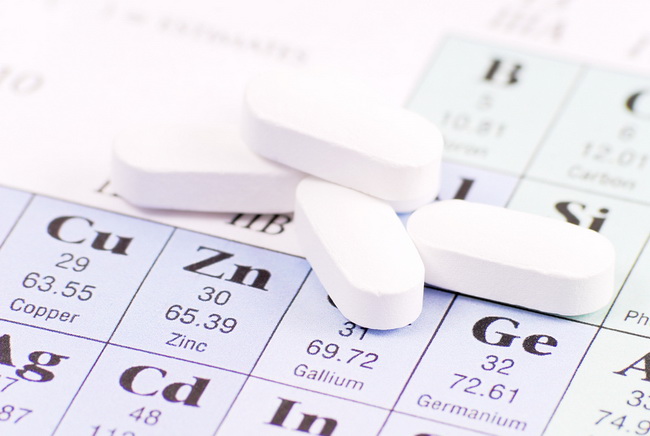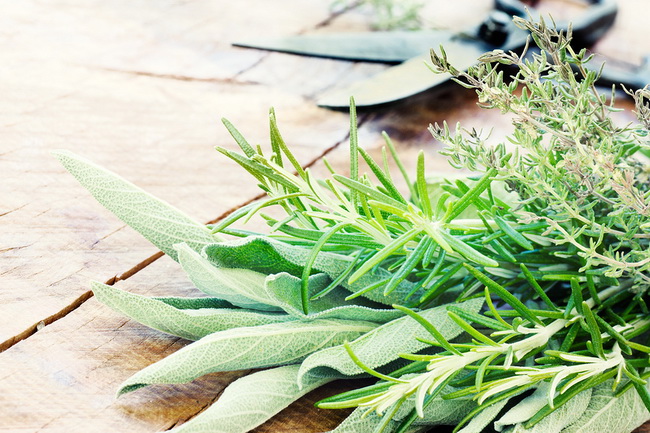- Make It Yourself Lavender Heart-Shaped Bath Bombs!
- 20 Things You Never Knew About “Down There”
- 12 Best Foods For Those Suffering From Arthritis Pain
- 12 Personal Hygiene Mistakes Almost Everyone Makes (Mom Never Told You About #4!)
- 15 Medicinal Plants And Herbs From The Cherokee People
- 12 Mind-Blowing Benefits Of Drinking Coconut Water During Pregnancy
- 12 Outstanding Winter Foods That Won’t Fatten You Up Like A Christmas Turkey
12 Natural Ways To Fight Stomach Cancer, Ulcers, And H. Pylori

Photo credit: bigstock.com
It wasn’t all that long ago that doctors believed stomach ulcers and stomach cancer were caused by things such as smoking, stress, spicy foods, and other lifestyle habits. In fact, there are still plenty of people who believe that this is true; however, back in 1982, it was discovered that most ulcers and other types of stomach problems are caused by bacteria. The worst offender by far is the bacteria Helicobacter Pylori, more commonly called H. pylori.
This is a very common type of bacteria that is easily transferred from one person to another through saliva and other body fluids by sharing eating utensils, sharing toothbrushes, or kissing. With more than 60 percent of the world’s population infected, this bacterium is almost as common as herpes.
Most people never know that they have these bacteria in their body, and they will show no symptoms, but for others, H. Pylori aggressively attacks the lining of the stomach and can cause such severe damage that it exposes the stomach wall to stomach acid.
When this happens, people experience symptoms such as:
- Bloating
- Mild to severe stomach pain
- Vomiting
- Abdominal discomfort
- Excessive burping
- Weight loss
- Loss of appetite
If these bacteria grow unchecked, it can lead to infection, ulcers, and stomach cancer. Doctors can test for the presence of these bacteria with a simple breath test. The usual treatment is very aggressive antibiotics and antacids, but this is unnecessary in most cases.
Many people find that they can kill off this bacterium with natural methods. We have compiled a list of 12 of the most successful methods of killing off H. pylori and stopping ulcers, pain, and perhaps even stomach cancer dead in its tracks.
If you believe you are infected with H. pylori, have your doctor confirm and ask which of the following alternative methods may work best for you.
Continue to Page 2

Photo credit: bigstock.com
1. Zinc
This powerful little mineral does so much for the body, and it is a powerful antioxidant that can fight the signs of premature aging and help stop prostate cancer. Zinc supplements reduce many of the uncomfortable symptoms that come with peptic ulcers. Zinc can encourage healing of the stomach lining, especially when taken in combination with carnosine, a common amino acid. Talk to your doctor about the proper dosage for your condition.
2. Mastic Gum
This resin comes from a pistachio tree and is used as a food ingredient in the Mediterranean. One study by Barnet General Hospital in England found that even low doses of mastic gum (a mere milligram each day over a two week period) was able to heal ulcers quite rapidly, although the exact reason is not fully understood. This same study also found that mastic gum is very effective against H. pylori. This substance has no known side effects, making it one of the best choices to fight H. pylori. Mastic gum is available almost everywhere in either a capsule form or as a chewable wafer.
3. Turmeric
The Indian Institute of Chemical Biology found that the active ingredient in turmeric, curcumin, was able to completely kill H. pylori infestations in studies involving mice. Turmeric did this by suppressing the matrix that causes inflammatory molecules linked to H. pylori infection. Curcumin can even be an effective tool when fighting stomach cancer caused by H. pylori, according to a 2009 study at the Graduate School of Medicine.
Continue to Page 3

Photo credit: bigstock.com
4. Probiotics
Everyone has both good and bad bacteria in their bodies. This is the natural balance of life. Probiotics are living “good” bacteria. Although it might seem strange, our bodies need “bad” bacteria to help the good bacteria function properly. Our bodies keep a healthy balance naturally, but we hardly live in a natural environment any more. Consuming probiotics, such as in yogurt, fermented foods, or through supplements, is a great way to restore this healthy balance to our digestive system, which can help to naturally remove H. pylori.
5. Aloe Vera
This little plant is so underrated when it comes to anything but skin care! This ancient medicinal plant has natural anti-inflammatory and antibiotic compounds that work wonders when used internally and externally. A 2014 Italian study tested the effects of aloe vera gel on several different strains of H. pylori, and they found that the gel from a 5-year-old aloe vera plant had the strongest antibacterial compounds when it came to fighting all H. pylori strains. Talk to your doctor about how to consume aloe vera gel to kill off your infection.
6. Cranberry Juice
Long known to be a natural medicine when it comes to fighting infections, such as in the urinary tract and the kidneys, cranberry is also now known to prevent H. pylori from attaching itself to the lining of the stomach. The oncology department at Peking University found in one study that those who consumed 500 ml of cranberry juice each day tested completely negative for H. pylori at 35 days and then again after 90 days. This and other studies showed that cranberry’s anti-adhesion, antibacterial mechanism might be the newest tool to help kill off H. pylori and the damage it causes.
Continue to Page 4

Photo credit: bigstock.com
7. Supplements
There are a few supplements that have shown to be effective in fighting H. pylori, including:
- Korean Red Ginseng – Studies involving animals show that this type of ginseng is very effective against H. pylori. Korean red ginseng is very different from other types of ginseng and can have serious side effects such as increased heart rate, higher or lower blood pressure readings, and lower blood sugar levels. Consult a professional before consuming this herb.
- DGL — More commonly known as deglycyrrhizinated licorice, this can be taken in a chewable tablet and has been shown to be effective against these dangerous bacteria.
- Baikal Skullcap – This herb works as a natural antibiotic. Baikal skullcap (scutelleria baicalensis)can greatly diminish blood clotting, so if you are already taking blood thinners or if you are about to have surgery, you should talk to your doctor before consuming this supplement.
8. Manuka Honey
Manuka honey is unlike any other type of honey on the planet. It has the strongest levels of anti-bacterial and antimicrobial compounds of any honey and can inhibit the growth of H. pylori. The University of Waikato in Hamilton, New Zealand, published a study in the Journal of the Royal Society of Medicine that found Manuka honey completely stopped the growth of H. pylori.
SEE ALSO: Got Stomach Aches and Pains? We Have 12 Herbal Solutions that Work!
9. Extra Virgin Siberian Pine Nut Oil
This cold-pressed oil comes from the pine nuts of very specific opine tree that, despite its name, is found around the world. This is a gourmet cooking oil, but it has a lengthy history of medicinal use. An old Siberian folk remedy for stomach ulcers and reflux was to drink two teaspoons of this oil each day, about 30 minutes before a meal over a three to four week period. Although there do not appear to be any studies done involving H. pylori and this oil, numerous personal accounts vouch for it. This is actually very healthy oil, so you have nothing to lose.
Continue to Page 5

Photo credit: bigstock.com
10. Herbs
There are also numerous edible herbs that are believed to control the H. pylori bacteria in the body. The best spices for this purpose are:
- Garlic
- Curry leaves
- Oregano
- Ginger
- Thyme
- Cayenne pepper
- Fenugreek
- Cinnamon
11. Green Tea And Red Wine
Some natural plant extracts that contain anti-H. pylori compounds include green tea and red wine. Grapes are well-known for their high levels of antioxidants and polyphenols, and a few studies have already reported that grape seed extract and green tea extract have more of these anti-H. pylori compounds. Drink three or four glasses of freshly brewed green tea each day or no more than two glasses of red wine each day.
12. Olive Oil
One Spanish study published in the Journal of Agricultural and Food Chemistry found that virgin olive oil can both treat and prevent H. pylori infestations. Lab tests showed that the antioxidant compounds in virgin olive oil are very effective when it comes to fighting several different strains H. pylori. These tests need to be repeated using human subjects for verification, but adding more virgin olive oil into your diet can treat or prevent ulcers.
H. pylori is the only bacteria not made to live in the stomach survives there and is not killed by stomach acid. This type of bacteria can be very difficult to kill, but with some diligence it can be corrected naturally.
References:































